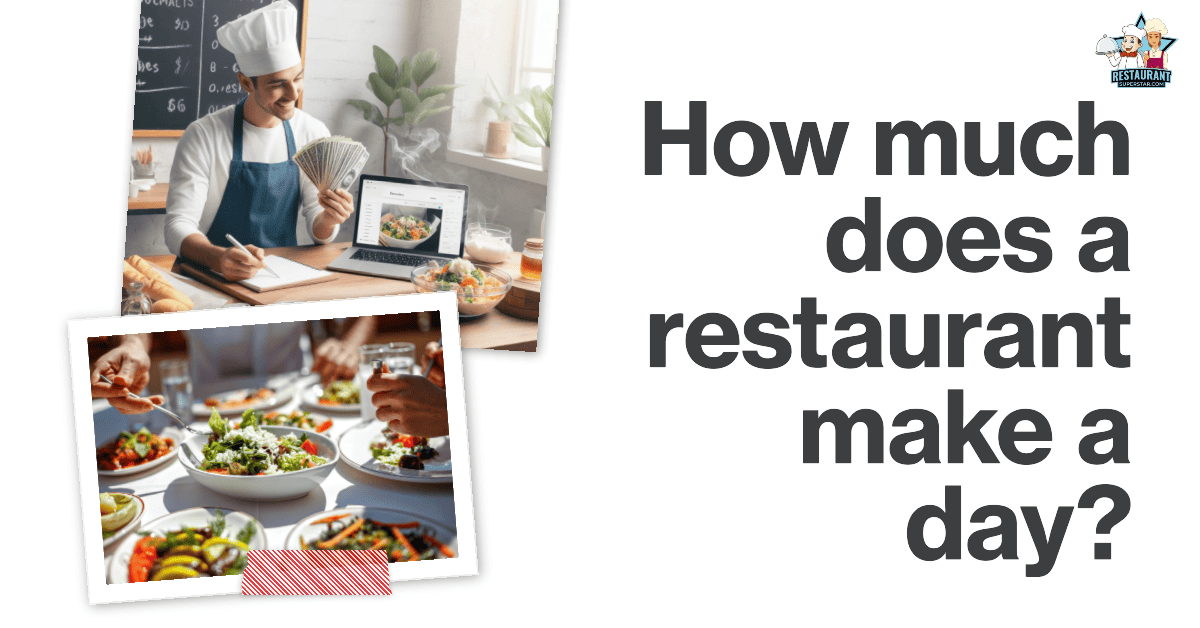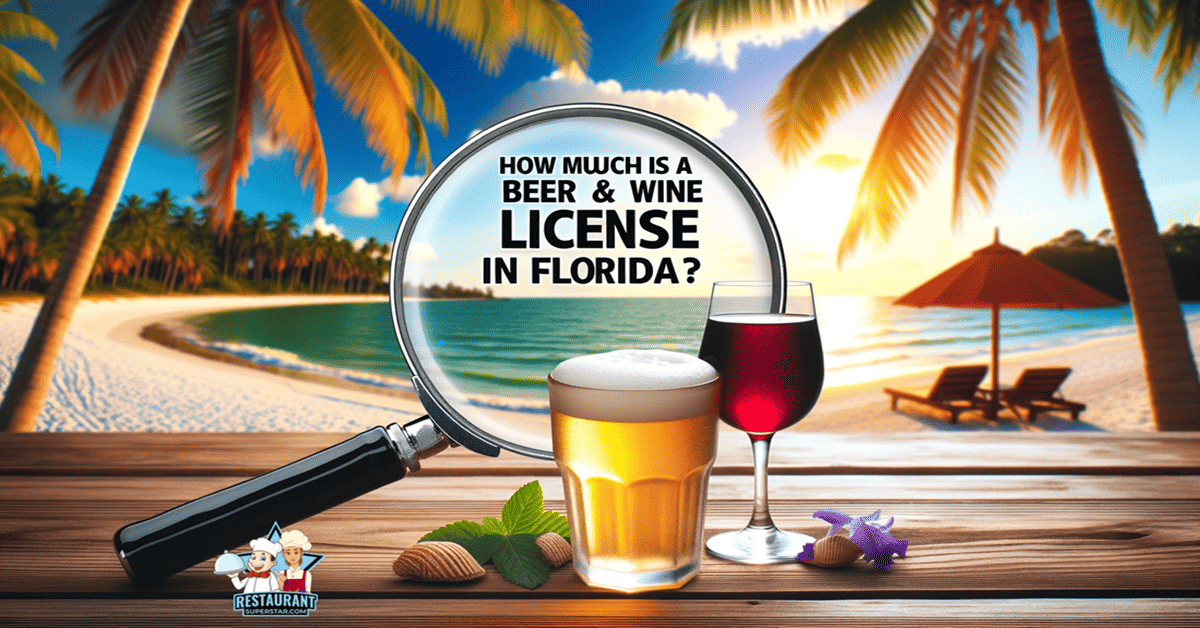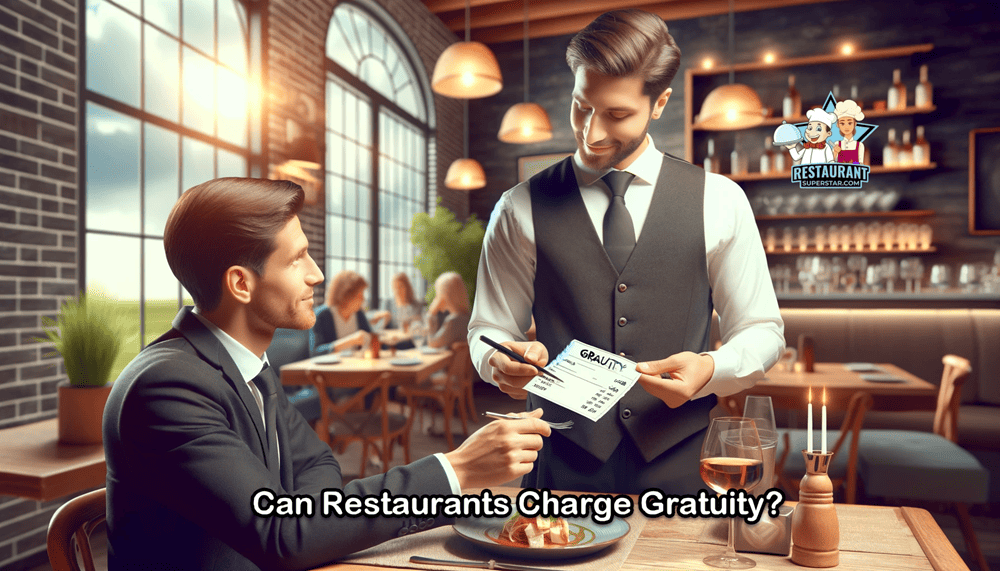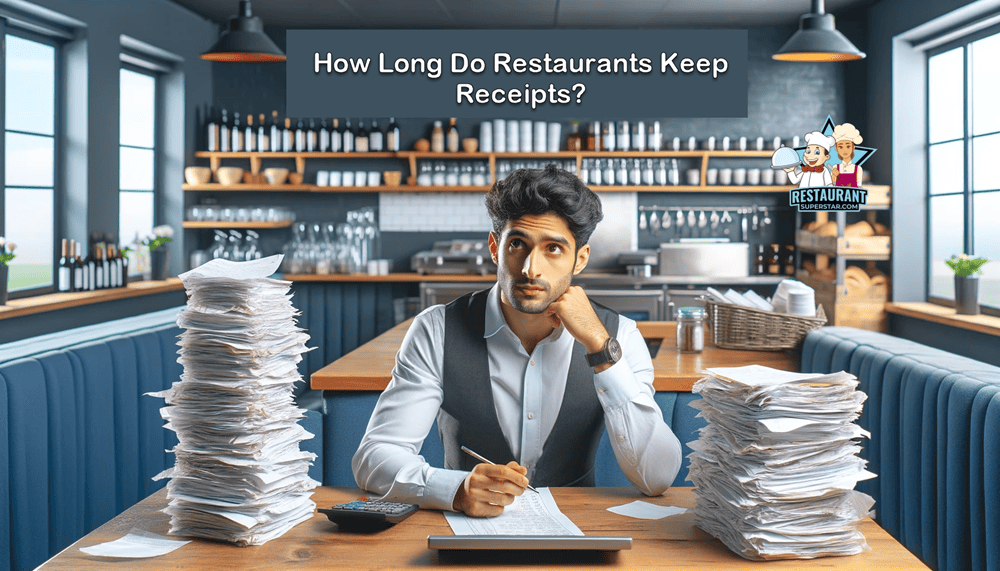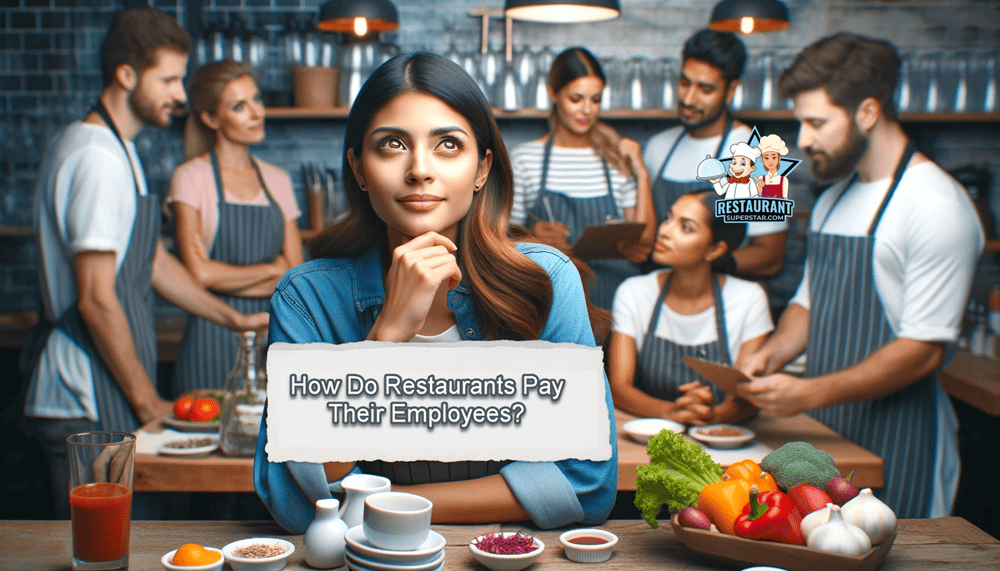What Is An Independent Restaurant? (Latest Update)
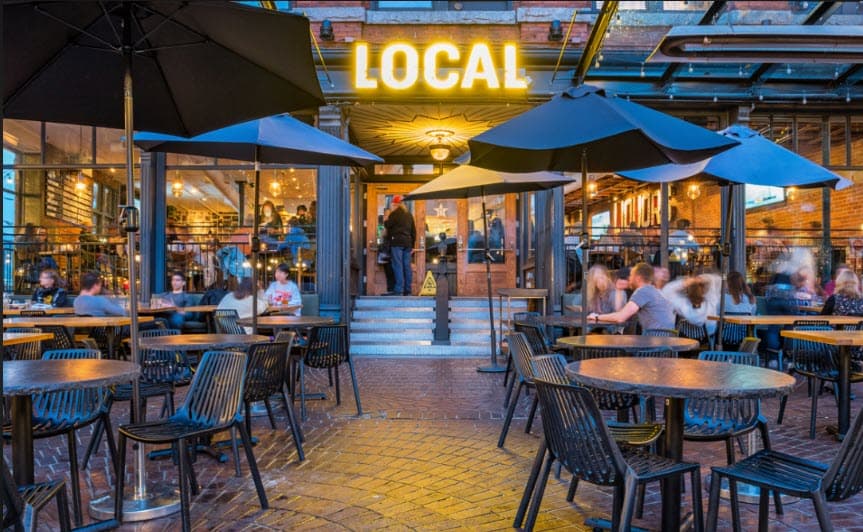
Welcome to RestaurantSuperstar.com. If you’re curious about What Is An Independent Restaurant? You’ve come to the right place! This article will dive into the fascinating world of Independent Restaurants, Corporate Chains, and Franchises.
Get ready to uncover the secrets behind these culinary powerhouses. And hey, if you find the article helpful, don’t forget to share it with your restaurant industry pals.
Let’s spread the knowledge together.
What Is An Independent Restaurant
What Is an Independent Restaurant? An independent restaurant is privately owned and managed by a single person (or partners) instead of a chain owned by a large corporation. The owner has complete control over how to run their restaurant as it is not under the thumb of corporate rules.
There are risks and potential benefits when deciding whether to buy a franchise or open an independent restaurant. While it’s unclear which ownership method is more effective, it’s essential to consider various factors before making the best choice for you.
These factors include the early start-up responsibilities, how much control and decision-making you want, the funding needed to launch the business, and how much prior expertise is recommended.
If you want to learn more about these aspects and what you should think before making your final decision, keep reading below.
Operating an Independent Restaurant?
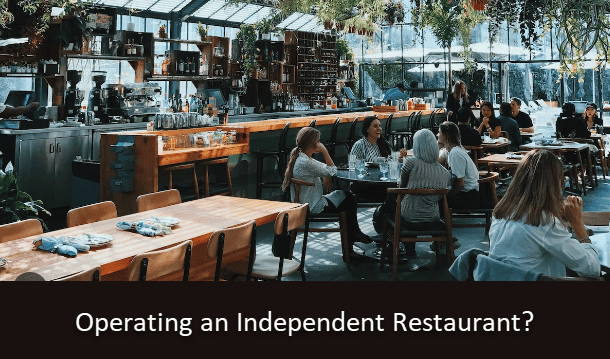
First, you gotta come up with a concept for your restaurant. To get people flocking through those doors, you gotta know your target audience. Find a niche cuisine that speaks to them and create a warm and welcoming atmosphere for them to enjoy.
So, once you’ve got a concept in mind, it’s time to find the perfect spot to set up your restaurant. Let me tell you that your chosen location can impact your revenue.
Think about it: who will go through all the trouble of traveling far for a meal? If you want those big profits, you can’t just rely on a handful of regulars – you have to attract some fresh faces, too, you know?
Even if you do everything perfectly, running a restaurant may be risky. Many people are using the compensation culture to file claims with unjust or immoral motives, regardless of whether you or your restaurant were at fault for the incident.
You and your company will be safeguarded by restaurant insurance from legal action.
Benefits of Owning an Independent Restaurant

- Being independent allows you to create your own identity, menus, and dining environment for your clients. You can experiment with new things, such as outside dining and selling a variety of desserts, without seeking approval, as you would with a franchise.
- Another benefit of owning a business or restaurant is having complete control over how you want to manage it. When you own a franchise, the franchisor is the one that specifies the types of food you can offer and the layout of your site. The operational processes you must follow every day.
- Additionally, you might be able to launch an independent restaurant for less money than you would need for a franchise. When opening an independent restaurant, as many chains do, you won’t have to worry about creating a sizable franchise fee or demonstrating a sizable net worth.
Regarding franchises, there are some sweet financial perks to consider. You can score bulk discounts on startup materials and save on initial advertising and renting fees.
On the other hand, running your independent restaurant allows you to scout for an affordable site and carefully analyze expenses, services, and equipment from suppliers to develop a wallet-friendly game plan.
- Owning and operating your own business helps avoid the legal and personal risks of running a franchise. When you don’t have a franchisor to answer to, you only need to concern yourself with your staff and yourself, reducing conflict arising from differences in approach. Plus, you eliminate the chance of a franchising organization facing financial or legal troubles that could potentially lead to the closure of your company.
Negative Aspects of Owning an Independent Restaurant
- While being in complete charge of your restaurant benefits flexibility and creativity, it also has the drawback of total responsibility. When you run an independent restaurant, you are on your own and must rely on your resources for support; moving in the right direction can be difficult if you’re inexperienced in managing or operating a restaurant, whether you’re having trouble marketing yourself or with the distribution.
- Your independent restaurant may take longer to acquire customers and earn a profit. Launching an independent restaurant requires investing time, money, and effort into getting known in the area and marketing your business. Instead of operating a franchise, you’ll need a longer time to see a return on your investment.
- While it is possible to sell an independent restaurant, you must have worked hard to establish a solid reputation and convince potential purchasers that doing so would be lucrative for them. Suppose you do have problems finding a buyer for the restaurant. In that case, you can sell for considerably less money than you had hoped.
What Exactly Is a Restaurant Franchise?
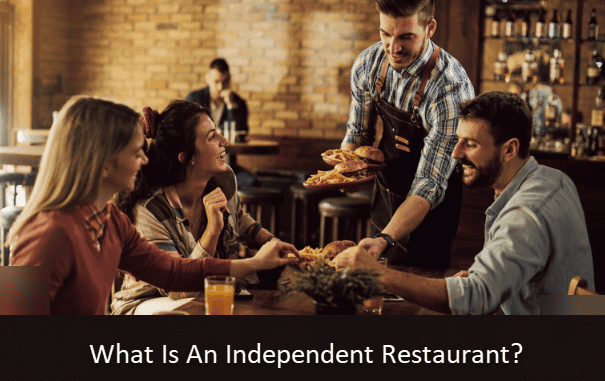
A restaurant franchise is a branding a franchisee or investor has purchased the right to use. The franchisee is in charge of managing and operating the restaurant daily. The organization issuing the license, or franchisor, provides assistance, marketing, and a tried-and-true restaurant model in exchange. Franchises and non-franchises differ significantly from one another.
What Are the Differences Between an Independent Restaurant, a Corporate Chain, and a Restaurant Franchise?
As the name suggests, independent eateries are precisely what they sound like – independent.
The owners, individuals, or a group handle all the funding, marketing, brand development, and training needed to run a successful restaurant.
For an independent restaurant, the ideal candidates would be folks who have worn the chef’s hat or have deep expertise in the restaurant business.
Running your restaurant entails a lot of work since you’re responsible for crafting everything.
The best part?
You get to keep all your earnings without paying royalties for your brilliant idea.
A corporate chain
In the chain restaurant system, the owner of a restaurant brand and logo, registered as a trademark, allows someone else to buy the rights to use the chain’s name and marketing materials.
The third-party pays fees and royalties to the trademark owner and, in return, receives education, promotional products, and other advantages.
It’s a mutually beneficial arrangement where independent restaurant operators can tap into the benefits provided by the franchisor.
Large chains typically split ownership and management, delegate management tasks like operations, marketing, human resources, and financial accounting to specialists, modify the nature of management as a company evolves, and are geographically distributed.
Franchise restaurant
When a business decides to expand, it has two options: either sell franchises or go it alone. If it chooses to franchise, it sells its well-established brand and operating model to investors.
Take, for example, a popular restaurant that sells its brand and business model to investors in different cities.
On the other hand, if the primary business decides to grow independently, it acquires the necessary tools and properties for expansion.
In the case of franchisees, each location’s quality is controlled by the respective business owners.
What Are Some Examples of Independent Restaurants?
For your convenience, we have compiled a list of some of the best in Florida-based independent restaurants. Let’s take a closer look at this.
- Joe’s Stone Crab, Miami Beach
- TacoLu, Jacksonville Beach
- Yoder’s Restaurant & Amish Village, Sarasota
- Versailles, Miami
- Frenchy’s Cafe, Clearwater
- T-Ray’s Burger Station, Fernandina Beach
- Satchel’s Pizza, Gainesville
What Distinguishes an Independent Restaurant from a Franchise?

Owners of independent restaurants can steer them in two directions: toward failure or success. Independent operators have complete control over all restaurant decisions.
The owner and their management team make 1,000 other decisions, which can be changed at any time, like the decor, human resources, menu, ingredients, and food suppliers.
Systems, recipes, procedures, and chain restaurant policies must be strictly followed.
These systems have frequently been created over many years. The restaurant’s construction, design, decor, and cooking equipment must meet established specifications.
The chain’s corporation will source uniforms, POS software, outside vendors, and occasionally repair technicians.
Regular audits ensure that these guidelines, rules, and regulations are followed. Several sanctions are applied when requirements specified by the chain are violated.
To guarantee consistency and food safety, specific food sources are required.
Both hourly and management training have specific rules that you need to follow.
When it comes to HR-related concerns, there are rigid procedures in place.
The specials and menus are already predetermined. Chains usually provide everything you need to run your business successfully.
So, as a chain operator, you must stick to the procedures and be on the path to success.
Check out this Video: Independent Restaurant vs. Franchise Restaurant
What Benefit Does Having an Independent Restaurant Have?
It’s not that more prominent merchants don’t foster a sense of community, you know? Independent shops are often like the heart of a community.
These local retailers can even be the only source of employment for folks in certain cities and towns, bringing in loads of money for the community.
They are often long-standing businesses in the neighborhood passed down through generations.
According to the Global Entrepreneurship Monitor, did you know that one in five business owners or managers work with their families?
It’s interesting to see how independent merchants play a crucial role in shaping the local culture of their neighborhoods.
They often look for brands and suppliers to enhance that impression and offer locally focused products. It’s all about creating that special connection with the community they serve.
Is an Independent Restaurant Profitable?

You, what’s surprising? Independent eateries have such a high failure rate. We’re talking anywhere from 60% to 95% in the first year. And guess what? It’s even more for those who have zero experience managing a restaurant.
Crazy, right?
Franchise restaurants tend to perform better over time, little by little. It’s essential to make sure your location is suitable, though.
But here’s the catch: they keep charging you yearly fees regardless of your success. On top of that, their costs eat into your profit.
Mc’s has always been a bit of an outlier, boasting historically high-profit margins.
The restaurant industry is competitive.
Get managerial experience before considering ownership.
Which Is More Profitable, an Independent or a Franchised Restaurant?
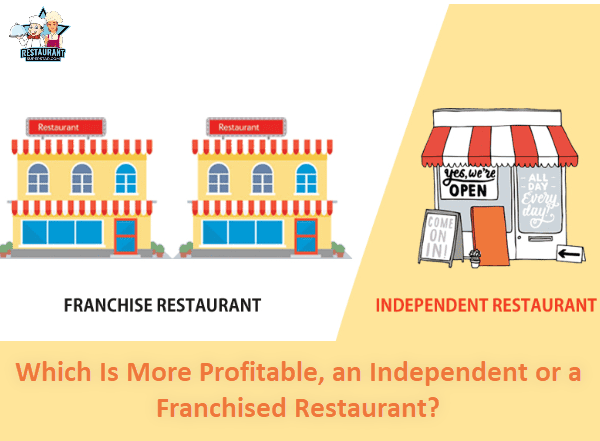
So, according to this super comprehensive survey by Franchise Business Review, the average franchisee – you know, those folks in the franchise business – make around $66,000 in profit each year.
But, hey, let’s not get too carried away with generalizations because, you know, ideas within the same industry can vary so much;
But here’s the thing: franchisors are hesitant to talk about how much franchisees can make from running their businesses.
I get it; the hesitation is understandable to some extent.
So, here’s the thing: if a franchisee doesn’t meet the earnings targets set by the franchisor, legal action might come into play.
Which Is Preferable: Independent or Chain Restaurants?
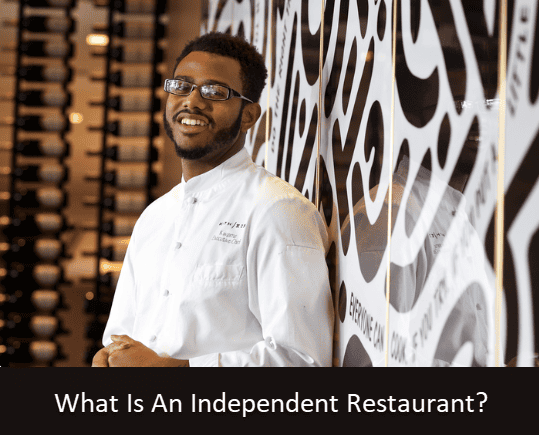
Starting a restaurant can be enticing for a bunch of reasons. As a business owner, you’ve got more control, responsibility, and the ability to make things happen the way you want.
But boy, that kind of pressure is no joke for just one person to handle.
That said, If you’re considering a career in the restaurant industry, you might choose to open an independent restaurant or a franchise.
Before diving into your entrepreneurial journey, it’s essential to understand the differences between the two. After all, each business model has its pros and cons.
Deciding whether to start your restaurant or go for a franchise is a tricky question with no definite answer. It all concerns your entrepreneurial goals, financial capacity, and available resources.
So, when making this choice, you might want to consider the differences between the responsibilities of owning a franchise restaurant versus running an independent one.
As a new restaurant owner, you will discover that you have a lot of obligations if you choose to franchise.
You will be in charge of administering your company’s daily operations, working with your staff to open the restaurant, and analyzing the business plan given to you.
Your days will probably be hectic, fulfilling, and productive. Still, they won’t be as demanding as those of a proprietor of an independent restaurant.
An independent restaurant owner must handle every part of running the establishment independently without a manual.
An independent restaurant owner must develop a business plan, a marketing plan, and brand recognition from scratch.
Independent owners must also engage closely with their local government to verify that everything conforms to standards and that all laws and regulations are followed.
Not to mention that they must simultaneously hire and train a workforce to support the opening of their businesses.
Frequently ASKED Questions
What is the difference between an independent restaurant and a franchise restaurant?
Independent restaurants allow owners complete control over operations. In contrast, franchisees operate with limited control, adhering to a set menu and following strict brand guidelines.
What are the advantages of independent restaurants?
Owners of independent restaurants enjoy total autonomy over the restaurant’s concept, menu, interior design, and ambiance. There’s no obligation to follow corporate directives.
Who owns an independent restaurant?
A restaurant is owned and operated by just one person. This owner has complete autonomy over every aspect of the business, from its location to its theme, free from any external restrictions.
Is McDonald’s a chain or independent?
McDonald’s is a prominent global food service retailer with thousands of outlets across the globe. Around 93% of its restaurants are managed by local, independent entrepreneurs.
What are the disadvantages of an independent restaurant?
Independent restaurant owners face challenges, including a lack of training, brand recognition, and initial unavailability of essential resources and industry connections.
Is an independent restaurant part of a franchise?
While independent restaurants operate on a smaller, local scale, franchise restaurants are local businesses tethered to larger, recognized brands.
Is it better to be a franchise or independent?
Franchisees benefit from the franchisor’s resources, potentially leading to higher efficiency, increased revenue, and decreased operational costs. They can also capitalize on the brand’s marketing and buying power.
What are examples of independent restaurants?
Some examples are:
- Komodo with 285,000 meals served
- The Boathouse Orlando, with 921,785 meals served
- Swan with 185,000 meals served
- Maple & Ash in Chicago
What are the characteristics of an independent restaurant?
Independent establishments prioritize quality. They tend to source fresh, local produce and invest time in crafting and perfecting their dishes.
What are the two distinct differences that separate a chain restaurant and independent restaurants?
Chain restaurants are typically larger than their independent counterparts, boasting more locations and a bigger workforce. This often results in better funding, superior resources, and enhanced food quality and consistency standards.
What Do Non-chain Restaurants Go by?
It’s what you call a mom-and-pop shop. You know, those small, independent businesses run by families. They usually have just one location a small staff, and bring in a modest amount of revenue. And they’re usually not part of any franchise.
How Many Independent Restaurants Exist in the United States?
As of December 2019, there were over 490,000 independently owned eateries across the country, ranging from quaint family-owned cafes to bustling local restaurants serving various cuisines.
What Are Independent Bars?
What exactly are independent bars? Independent Bars, sometimes dubbed a “true dive bar,” are great for drinkers who don’t particularly care for a chic setting or going somewhere to see and be seen. Independent bars are the lifeblood of a city’s nightlife.
Is It Preferable to Establish a Restaurant Independently or As a Franchise?
If you’re an entrepreneur wanting to run a restaurant with fewer risks, a franchise could be your best option. You won’t have to deal with all the stress and responsibility of going at it alone, but you’ll still enjoy the perks of running your own business.
Conclusion – What Is An Independent Restaurant?
According to many professionals, folks with a background in hospitality, like chefs, restaurant managers, or hotel management students, are often better suited to start their businesses.
On the other hand, if you’re a novice restaurant entrepreneur, you might want to consider going the franchise route. Quite a few cases exist of people from different backgrounds successfully running their businesses. It’s all about finding what works for you!
Ultimately, it depends on what motivates you to open a restaurant, you know? Choosing a franchise may not be the most excellent choice if you’re a fantastic cook or have always dreamed of creating your own eatery. But hey, if you see running franchise restaurants as a solid investment and treat it like any other business, it could be a terrific idea.
Jeff Smith is a Restaurant Consultant with over 20 years of hospitality experience, from server to owner to general manager. He focuses on Restaurant POS technology as well as restaurant marketing. Check out our world-famous restaurant resources page for a comprehensive offering of hand-picked resources and tools to help your business. You can also check out some of our other restaurant business articles.

